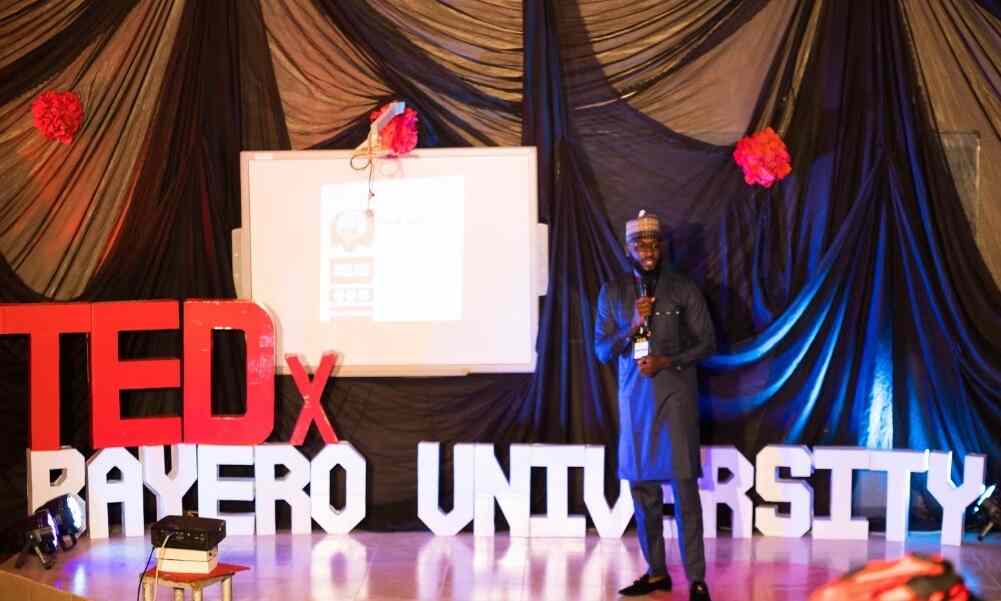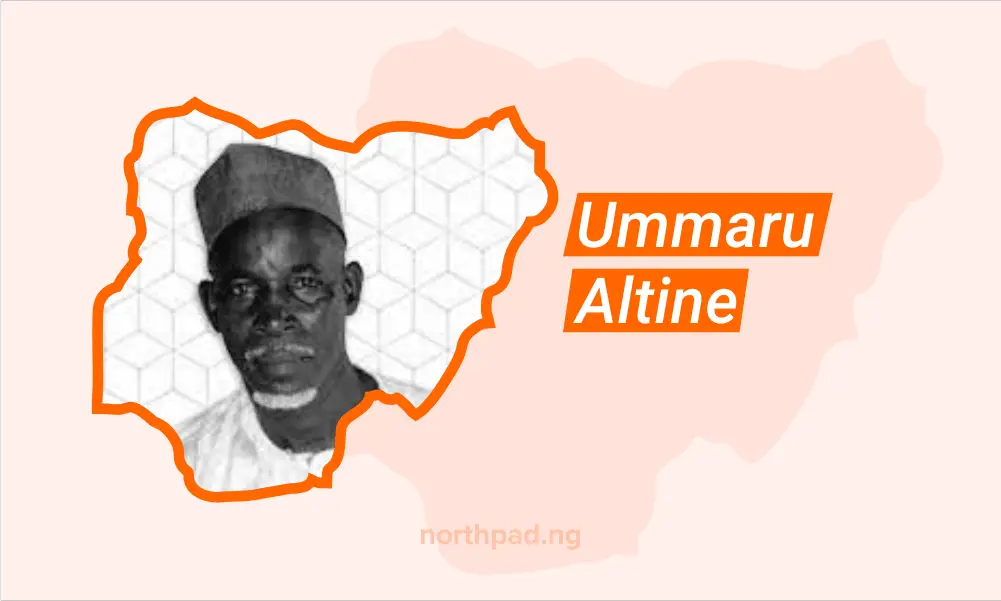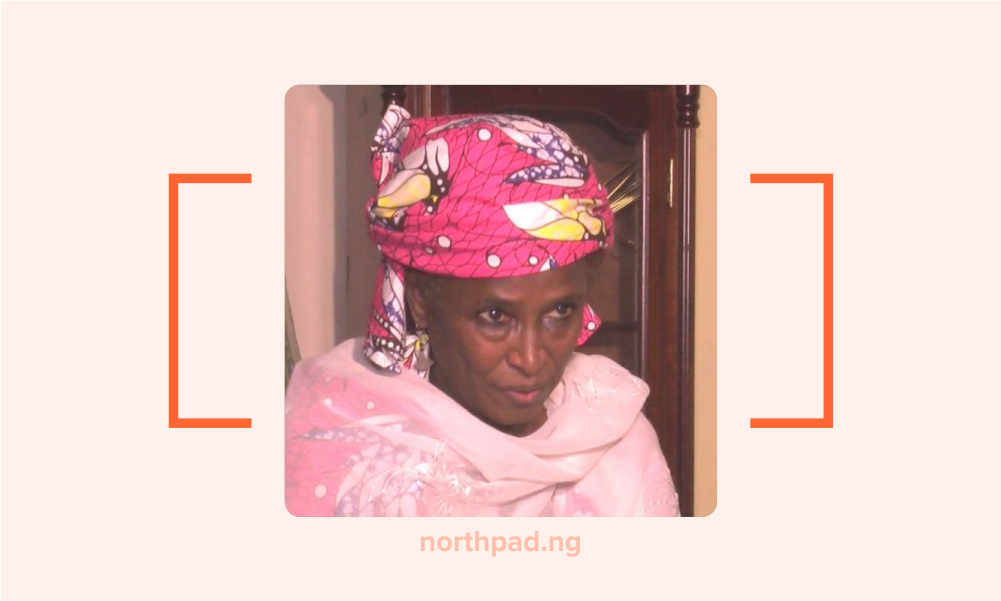
by Amina Lawal | Jan 27, 2022 | The Gist
This year, the second TEDx Bayero University event in Kano was hosted at Bayero University where mind-blowing ideas were shared like ice cream in a cone to a junk craving child. The topic: Reveal, Rethink, Relearn, brought small, medium, and great minds to decorum as the ideas gave a renewing effect to the mind which made way for the spirit of TEDx which are learning, networking, and fun, to find expression.
The event took place on 7th January 2022 at Bayero University Kano.
Related: Katsina State Was Shut Down for TEDx Kangiwa Event
TEDxBayero University speakers;
The TEDx Bayero University speakers did great justice to this year’s theme; ‘Reveal, Rethink, Relearn’ as they spoke on a variety of topics.
Yahaya Buhari Ali
Yahaya Buhari Ali founder/ CVO YBI group, chairman of YBI foundation talked on ‘Entrepreneurship a web of lies myths and opportunities.’ He gave a story illustration of the lies of entrepreneurship, clearing the myths of it and the beautiful opportunities found in it.
To be a successful Entrepreneur, you must understand that there is the place of the technician, the entrepreneur, and the manager.
Beginning YBI group, he had to put himself at every position in the organization before delegating these positions to other employees in the long run.
Don’t just hire someone with a promise of salary, key them into your vision, show him the kind of company you want to build, the kind of future he is going to have once that company is built.
Murtala Adogi
Murtala Adogi; a professionally trained educationist, spoke on ‘how Nations are built’.
These three are drivers of reforms in a nation: the structure of the state/nation, its staffs, and the system.
In his talk, Murtala Adogi mentioned three types of governors as regards the influence of godfathers. He also talked about the types of political appointees.
Nshuraim Abdulmumin
Nshuraim Abdulmumin; founder of DID YOU KNOW studios and SAN studios spoke on ‘unleashing your potential the moral way.
In life, you meet two kinds of people; the dream chasers and the dream killers.
Being criticized for envisioning a TV show, where he would interview international speakers, Nshuraim Abdulmumin talked about drive, decisions, fear, right association, and knowledge in view of potential release in a moral way.
The Othman
The Othman; Business leadership coach and founder of WANDEC foundation, gave his talk on ‘unfolding the masterpiece in you’
The most important days of life is the day you were born and the day you unleash the masterpiece in you.
In his speech, The Othman stated that the only thing that can help unleash potential is the ability to learn, re-learn and unlearn.
He gave four stages of knowledge which are; an unconscious incompetent, a conscious incompetent, a conscious competent, and an unconscious competent. Practice and consistency have always been the weapon.
Everything that you desire is on the other side of you.
Zenab Adam
Zenab Adam; an educational consultant, a public speaking coach and founder Pro-Tech spoke on ‘Education today for the future’
Infrastructure isn’t what we really need in the Nigerian education system, especially when it’s not met with quality. What we need is quality teachers.
Starting her talk with questions that intrigued the crowd, on the school ‘na scam’ concept, Zenab Adam further drew the crowd in with the story of a young man who didn’t believe in his skills after years of study in the university.
If the education system doesn’t give us what we need, then the system has failed us, but if we limit our learning to the classroom then we have failed the education system.
Dr Aliyu Barau
Dr Aliyu Barau; an associate professor in urban and regional planning BUK spoke on “The climate reality”
By 2025, will West Africa be ready for the drought? Because it’s coming!
In his speech, he spoke about climate ignorance and how it can be solved. According to him, some East African countries currently experience drought, countries like Belgium suffer from flooding, others from snow.
“I am not a prophet of doom” he ended.
Salihu “Dawisu” Tanko Yakasai
Salisu Yakasai (Dawisu); a politician, Media marketing consultant, and a Harvard alumnus, talked about ‘Why we should all be politicians’
The political parties are the only way one can get into power.
As an active politician, Dawisu took us through his history in politics; as far back as 22 years ago. Losing his primary elections several times, he never gave up.
He also spoke about the way politics works, politics is all about man-management through relationships. He ended with why everyone should be a politician.
Hafiz Yaro
Hafiz Yaro; public health/international development practitioner spoke on ‘Volunteering as a recipe for growth.’
In today’s economy, the new currency is your ability to create value.
Dating his volunteering experience in 2009, his second year in medical school, Hafiz Yaro volunteered at a medical outreach program organized by the Association of Medical Doctors which informed his decision to pursue a career in public health.
He mentioned three short-term benefits of volunteering; access to information, access to network, learning, and capacity building. When volunteering, have a clear roadmap of what you want to achieve, create as much value as you can for the organization you are volunteering in, because the ability to create value stays with you forever.
Khalifa Rabiu Tahir
ARC. Khalifa Rabiu Tahir; CEO Construcshop, secretary-general of the NYE, and Global Shaper Member spoke on ‘The new model of job economy’
What is the key? The education they say is the key, but the padlock has changed.
He mentioned that most of the jobs anyone can do today can or are already replaced by AI, only a few cannot be replaced, in the likes of Teaching, Doctoring, Therapy, Architecture.
Finally, he stated that the best thing to do is to learn, unlearn and relearn.
Book fest
What is an event without the opportunity of a handheld insight into the minds of the great?
Several books were on display from different authors with diverse topics to ponder.
There were several performances from excellent presenters at regular intervals; the rhythm of poetry, the vibe of song covers, the piercing of spoken words, the melody of the saxophone, love expressed in words, the scale of preferences through the eyes of a student; this is a fragment of the fun in the spirit of TEDxBayeroUniversity.
The TEDx Team
TEDx Bayero University was a challenge to me and the team, a project we felt was bigger than us. When we brought our goals together and built the spirit of TEDx Bayero University; learning, networking, and fun, we saw the possibility of actually impacting our world.
Al-Amin Masu, Curator TEDx Bayero University
Here we are today; TEDx Bayero University was a success.

by Amina Lawal | Nov 25, 2021 | Archives
Did you know that the first mayor of Enugu city was a Fulani man? Enugu is the capital of old Eastern Nigeria with a majority of Igbo speaking people; therefore it is imperative to explore and understand how a Fulani politician became the mayor of the city. He held this post till 1958.
Who Is Malam Umaru Altine?
Mallam Umaru Altine was an ethnic Fulani cattle dealer from the Old Sokoto Province of defunct Northern Nigeria. His kids were raised in the house of the late Sultan of Sokoto. He grew up under the reign of Sultan Siddiq Abubakar III who was the Sultan for 50 good years and one of the longest-reigning Emirs ever in northern Nigeria.
As a descendant of Uthman Dan Fodio, he could have been Sultan of Sokoto. But he preferred the world of trading, travel, adventure (he joined the army and worked with the railways) and politics (one account says he first contested an election in Tambuwal, Sokoto state), and he carved a niche for himself in these respects. He was handsome, was always well dressed, and people were magnetically drawn to him.
He later migrated southwards where he came under the heavy influence of the late nationalist, Dr Nnamdi Azikiwe who was his mentor. Azikiwe gave Altine immense support and played a very significant role in his emergence as the Mayor of Enugu. Nnamdi Azikiwe’s political machine made it possible for Alhaji Umaru Altine to become the mayor of Enugu.
Dr Nnamdi Azikiwe, the first Governor-General and first President of Nigeria was by no means perfect in his political career but his faith in one Nigeria was unshakable, unquestionable and his quest for unity and indivisible Nigeria was never in doubt.
How Umaru Altine Became The Mayor of Enugu
It will interest you to know that Malam Umaru Altine was not appointed. He was elected Mayor of Enugu two times. Malam Umaru Altine was the Vice Chairman of the NCNC Youth Association at Enugu. He identified with the NCNC as a political party. During elections, NCNC decided to nominate him at Coal Camp where he lived. He contested and won the election.
When Altine won the election, it was decided that this man did not see himself as a Fulani man but a nationalist. And the NCNC believed in one Nigeria. So, they let him be the Mayor of Enugu.
Before he was elected the Mayor by fellow councillors, he was President of the Enugu Branch of the National Council of Nigeria and the Cameroons (NCNC) Youth Association, a post to which he was elected in May 1953 with the support of the Igbo middle class who were mainly businessmen, civil servants and professionals.
He contested twice for the post of Mayor of Enugu against Igbo opponents and won both times The second election was even more significant in the sense that NCNC had asked him to step down for somebody else and he refused. Instead, he resigned from NCNC, ran as an Independent candidate and beat the NCNC candidate.
On the 10th of November, 1956, at a meeting of the NCNC, Umaru Altine was elected as President of the party branch without any opposition.
By the April of 1957, Altine’s support had dropped and the leadership of the Enugu Municipal Council had to be taken over by Mr LBC Ezechi, a trader from Udi.
His Style As Mayor
In Enugu, he wore the Babban Riga, as well as a Turban. On other occasions, he wore suits as the event demanded. He went to Church in Enugu if his duties as Mayor called for it, and went to do the kick-off at the stadium when occasion demanded. He was willing to adjust while retaining his identity.
Mallam Umaru Altine was fluent in Fulfulde and, to cap it all, he married an Igbo Lady. A noble, free and simple spirit is in evidence here.
Umaru Altne’s Death and Legacy
Malam Umaru Altine died in 1996, in his house in Kaduna. He was survived by his wife and children, including Abdulkareem Balarabe Umaru Altine. He was widely regarded as a detribalized Nigerian. A street in Enugu has been named after him.
What do you think about this great man? Do you think this is possible currently? Tell me in the comments.

by Amina Lawal | Oct 6, 2020 | Uncategorized
The academic branch of Nothern Nigeria in 1933 organized a competition for educators who were interested in writing books in the Hausa language. Among the competitions were Abubakar Imam, who wrote the fabled Ruwan Bagaja and his brother Malam Bello Kagara. The competition was the first of its kind in the region, and it succeeded in bringing out some great erudition works in the North. Sadly enough, no woman took part in this competition.
Some 30 years later, in the 1970s, another writing competition was organized by the Nothern Nigerian Publishing Company (NNPC) in Zaria. This time around an 18-year-old teenager decided to enter. She entered a book she originally wrote in Hausa and only translated it to English when she heard of the competition. The book – So Aljannar Duniya (love is heaven on earth) – came second in the contest. The name of the author is Hafsat Abdul Waheed. She was the first female love novelist from Nothern Nigeria.
Who is Hafsat Abdulwaheed?
Hafsat Abdulwaheed was born on May 5, 1952 in Kofar Mata quaters, Kano. She did her primary education at Shahuci Primary School and secondary school at Provincial Girls School currently known as Shekara Girls Secondary School, both in Kano State.
Hafsat Abdulwaheed started writing when she was in primary school, where she wrote folk tales for which she received awards. By the time she has started attending school, she developed writing skills from the assignments she was given. She wrote her first published novel when she was in primary five. She has written more than 30 books, many of which have remained unpublished. Her famous book remains So Aljannar Duniya.
So Aljannar Duniya
The masterpiece—So Aljannar Duniya (love is heaven on earth)— came second in the contest. It was published in 1972 and republished in 1980. It became the first novel to be written by a female author in Nothern Nigeria. The theme of the book revolved around love and forced marriages, a subject that was considered taboo in society and was underrepresented in books written by male writers in the region. The book was inspired by the experiences of her elder sister who at that time married a Libyan and the cultural differences began to generate friction in the marriage.
The book has been translated into English, Arabic, and fulfude due to the demand. So Aljannar Duniya was later adopted by several schools and institutions as a study text in the curriculum.
Hafsat Abdulwaheed’s Other Books
Though “So Aljannar Duniya” was her was Hafsat’s first love novel, it was also her last. She wrote 6 more books exploring so many topics including two nonfiction, stories that teach morals and could be read to children, and one poetry book in English.
Some of Hafsat’s published books include;
Yar Dubu mai Tambosai (“Yardubu the Possessed” – fiction)
Nasiha ga Ma’aurata (Admonition for the Married Couple – non-fiction)
Namijin Maza Tauraron Annabawa (non-fiction on the life of Prophet Muhammad)
Tauraron Annaba (The Courageous Man: The seal of the Prophets)
She is now focused on writing Islamic books. Authors who have influenced her the most include; Abubakar Imam and Sai’du Ahmad Daura author of Tauraruwar Hamada.
Achivements
The emergence of the first female author from Nothern Nigeria, threading on uncharted territories changed the dynamics of writing in Nothern Nigeria. This led to the rise of popular female authors of the so-called Kano market literature popularised in the 1990s. It won’t be an exaggeration if it is said that she paved way for authors like Zainab Alkali, Bilkisu Ahmad Funtua, Talattu Wada Ahmad, Balaraba Ramat Yusuf, and others in the region.
Political Activities
Along, with being a writer she’s also a women’s rights activist and politician. She has an NGO which assists women from Nothern Nigeria in dealing with domestic violence. Her journey into politics was spurred by the lack of inclusion of females in Zamfara state’s cabinet. The Governor of Zamfara at that time felt no female was educated enough to be in his cabinet, which Hafsat felt was an insult because in her house alone all her daughters were very educated.
She decided to contest the gubernatorial elections herself. Even though she ended up being denied the ticket by her party based on cultural and religious reasons, her courage to challenge the incumbency resulted in more women being appointed to the cabinet subsequently.
Hafsat Abdulwaheed’s Family
Through her efforts to contribute to society were truncated, she got to achieve that through her children. This includes Kadaria Ahmad, a prolific journalist and Zainab Ahmad, the wife of the current Governor of Kaduna State, Nasir El-rufai.
She had ten children, seven of whom are alive. She is happily married to her husband, Muhammed Ahmed Abdulwaheed, with whom she lives with in Zamfara state.














